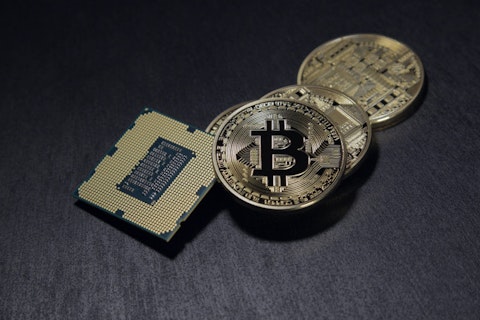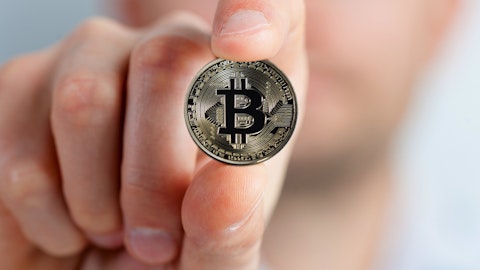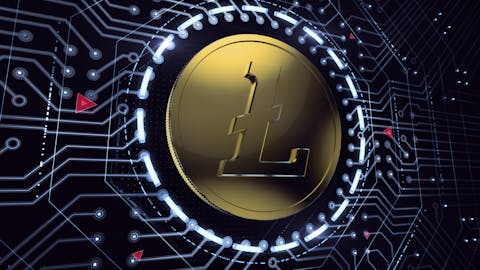Bitcoin Security Fears Send Digital Wallet Skyrocketing to THREE Times Normal Price as Experts Warn Stick to ‘Safe Neighbourhoods’ (Mirror.co.uk)
Crypto currency investors are being urged to stick to ‘safe neighborhoods’ after online scams sent demand for digital wallets skyrocketing. The Nano Ledger S is currently selling for almost £250 on eBay – more than three times its normal price – as sellers capitalise on Brits who desperately want to stay safe following a spate of ‘ Bitcoin crime’. Security fears mean manufacturers are struggling to keep up with demand, and UK shipments have been delayed until at least March 19. But Gasper Stih, CMO of cryptocurrency project Hedge, says while scare stories are hard to ignore, it is still possible to stay safe.
Litecoin Cash, the First Litecoin Fork is Expected in 18th February; Ripple and Bitcoin Gold Price Prediction (FXStreet.com)
Litecoin Cash (LCC) has been introduced to the market after forking from Litecoin. This hard fork apparently offers some advantages that might be very attractive for the markets. Most of all, a certification speed of just 2.5 minutes instead of the usual 10 minutes. Moreover, LCC can be mined with technology that it no longer works for Bitcoins, cheaper and with less energy consumption. Litecoin holders will receive 10 LCC for each LTC they have. XRP/USD Awaiting a Triggering Event: Ripple is not capitalizing on the latest commercial agreements to loan its money transfer platform technology and it is currently trading lazy.

Pixabay/Public Domain
Crypto Watch: Ripple (XRP) Price Surges 21% in 10 Hours (Forbes)
After a general trend of consolidation in the worldwide cryptocurrency market—following drops in the Dow Jones industrial average, Facebook banning cryptocurrency advertising, news of Chinese and South Korean regulation, India pushing toward a crackdown and news of Tether and Bitfinex subpoenas—the market cap is beginning to inch back up after January’s lows. One coin in particular made big leaps overnight (PST): Ripple (XRP). According to CoinMarketCap, Ripple was trading for $0.771540 USD at 9:19pm PST Feb. 8. By 6:44am on Feb. 9, that number was $0.931411—a jump of 21 percent in just 10 hours.
Central Bank of Singapore Would Not Ban Cryptocurrency Trading (Smartereum.com)
With more and more countries joining the ban bandwagon when it comes to cryptocurrencies, many investors are worried whether the monetary authority of Singapore would follow suit. According to a statement by the monetary authority of Singapore, they would not take any step to ban in cryptocurrency trading. The revelation was done by Deputy PM Tharman Shanmugaratnam. He, however, added that they would be taking certain steps to stop the illegal use of cryptocurrencies to launder money. He called it financial terrorism and added that there would be proper requirements for signing up on these cryptocurrency exchanges.
France and Germany Demand Bitcoin Clampdown (Telegraph.co.uk)
France and Germany’s economy chiefs and senior central bankers have collectively called for a crackdown on Bitcoin and similar cryptocurrency as its price continues to swing. Digital coins “could pose substantial risks for investors” and should be monitored closely, they claimed in a letter addressed to fellow G20 finance ministers. The letter, which requested that a discussion surrounding regulation was chalked onto the agenda for this year’s G20 Summit, was signed by German interim finance minister Peter Altmaier and France’s Bruno le Maire.
Arizona Moves One Step Closer to Accepting Bitcoin for Taxes (CoinDesk.com)
The Arizona Senate has passed a bill that aims to allow residents in the state to pay their taxes with bitcoin and other cryptocurrencies. As previously reported by CoinDesk, last month a group of lawmakers submitted a bill that, if passed, would enable taxpayers to use bitcoin or other cryptocurrencies in order to pay “tax and any interest and penalties” to the state’s Department of Revenue. The Department, in turn, would have 24 hours to convert those payments to U.S. dollars. Public records show that the Senate passed the bill on Feb. 8 by a 16-13 margin, with one no-vote. The measure has since been sent to the state’s House of Representatives for further consideration.
Nvidia Soars On Cryptocurrency, Gaming Revenue (ExtremeTech.com)
Nvidia’s Q4 2018 results are in (that’s fiscal quarter, not calendar year) and they’re not going to surprise anyone who’s been paying attention to the GPU market. The mammoth surge in cryptocurrency demand may not directly affect Nvidia’s bottom line, since the company has already signed contracts to provide GPUs to various companies, but it definitely impacts demand for Nvidia products as a whole. Nvidia is reporting $2.911B in revenue, an increase of 1.34x year-on-year, and 1.1x compared with Q3. Switch sales certainly haven’t hurt anything — sales in the Tegra business unit (not shown above) were $450 million, compared with $275 million just a year ago.
Russian Engineers Arrested for Using Nuclear Weapons Facility to Mine Cryptocurrency (Gizmodo.com)
Russian authorities say they have arrested several engineers employed at the the All-Russian Research Institute of Experimental Physics in Sarov, a top secret nuclear weapons facility, because they were involved in a cryptocurrency-mining scheme at work. The tightly guarded nuclear facility is where the USSR’s first nuclear bomb was built. According to the BBC, it has about 20,000 employees and one of the country’s strongest supercomputers, which can run at one petaflop, or perform a quadrillion operations per second. That’s ideal for running nuclear scientific calculations and simulations.
US and Britain Banks Ban Credit Card Cryptocurrency Buys (IOL.co.za)
INTERNATIONAL – Banks in Britain and the US have banned the use of credit cards to buy Bitcoin and other “cryptocurrencies”, fearing a plunge in their value will leave customers unable to repay their debts. Lloyds Banking Group, which issues just over a quarter of all credit cards in Britain, and Virgin Money said they would ban credit card customers from buying cryptocurrencies, following the lead of US banking giants JP Morgan Chase and Citigroup. The move is aimed at protecting customers from running up huge debts from buying virtual currencies on credit. Concerns have arisen among credit card providers because their customers have increasingly been using credit cards to fund accounts on online exchanges.





